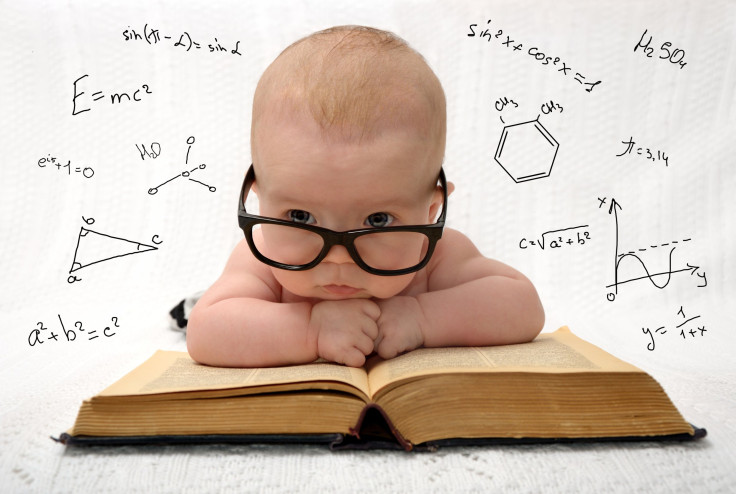Element Of Surprise Helps Babies Learn 'Significantly' Better

Peek-a-boo may have the power to make babies laugh, but researchers have found there could be valuable brain development potential in the way surprises can change a learning experience. Two brain psychologists from Johns Hopkins University studied how the element of surprise could help engage a baby to learn more efficiently. The study, which was published in the journal Science, was broken up into four different stages and designed to test 11-month-old babies’ ability to learn.
“Babies are always taking things in, learning, and observing the world,” the study’s lead Aimee Stahl, a Ph.D. candidate in psychological and brain sciences at the university, told Medical Daily. “Once they saw something that surprised them, their engagement with the object peaked and their learning behavior improved significantly. But we’re not overturning their knowledge by showing them unexpected events.”
The babies in the study were presented with both surprising and predictable situations regarding an object, such as a ball. One group of infants saw the ball roll down a ramp and stop at a wall blocking its way, while a second group saw the ball roll down the ramp and surprisingly, roll right through the wall. The researchers used another wall to block the babies from seeing the ball move onto the other side of the wall, making it appear as if it magically rolled right through.
The element of surprise provides a brain boost to the baby who becomes more intrigued by the possibilities of the unexpected. Babies who were shown the surprising events were able to learn faster and more efficiently afterward compared to those babies who saw the ball roll down the ramp as they expected. Babies use what they already know about the world to further their learning and build upon information they believe is reliable, such as a ball dropping because of gravity. If something is out of their range of foundational knowledge, the baby becomes more engaged as if the ball’s surprising behavior is highlighted in their minds as new and important information. Stahl believes adults may also learn the same way. However, further research will have to explore how the unexpected can provide impactful learning experiences.
“For young learners, the world is an incredibly complex place filled with dynamic stimuli,” said the study’s coauthor author Lisa Feigenson, a professor of psychological and brain sciences. “How do learners know what to focus on and learn more about and what to ignore? Our research suggests that infants use what they already know about the world to form predictions. When these predictions are shown to be wrong, infants use this as a special opportunity for learning. When babies are surprised, they learn much better, as though they are taking the occasion to try to figure something out about their world.”
Research efforts with the same principle are currently being tested on children at the Maryland Science Center at Baltimore. Stahl says they’re hoping to learn more about how the brain learns and adapts to unexpected events through the child as well, and to eventually shape and enhance their ability to learn.
Source: Feigenson L and Stahl AE. Elements of Surprise Helps Babies Learn. Science. 2015.



























